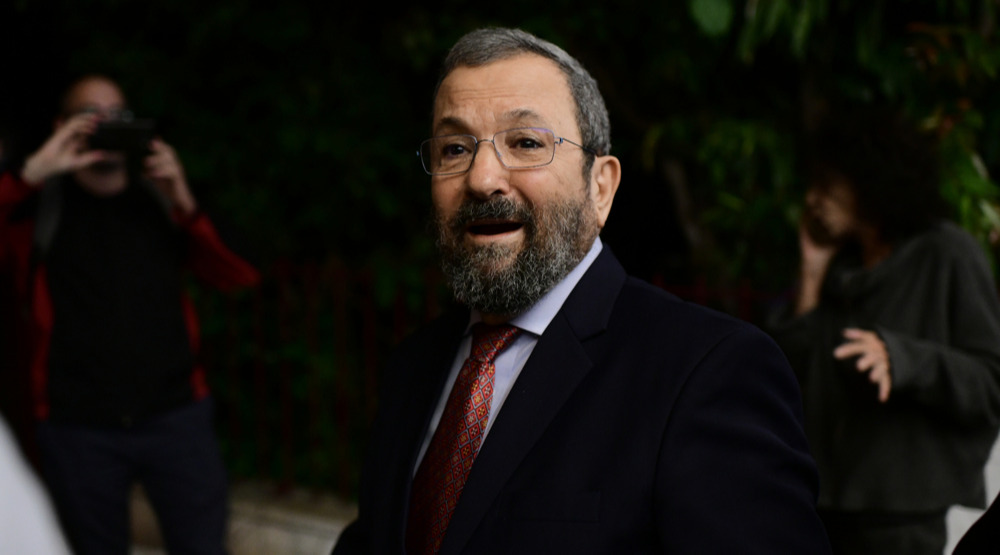
Ehud Barak in Tel Aviv in 2019. (File photo by Flash90)
Tel Aviv, February 20 (RHC)-- Former Israeli prime minister Ehud Barak says he does not regret the killing of more than a dozen Palestinian citizens of the occupied territories during the beginning of the Second Intifada (uprising) in 2000.
The second Intifada – commonly referred to by Palestinians as al-Aqsa Intifada – began in September 2000, after then-Israeli opposition leader Ariel Sharon stormed the al-Aqsa Mosque compound in occupied East al-Quds with heavily armed Israeli forces.
It sparked widespread outrage among Palestinians, who had just marked the anniversary of the 1982 Sabra and Shatila massacre, triggering protests which were met with Israeli police brutality.
Palestinians in the occupied territories took to the streets to condemn Israeli police brutality and voice solidarity with the people facing violence in al-Quds and the Gaza Strip. Israeli police shot dead 13 unarmed Palestinians in the wake of the demonstrations.
Some reports say about 3,000 Palestinians were killed over the course of the Second Intifada that ended in February 2005, but the Palestinian Center for Human Rights put the death toll at 4,973. In 2019, Barak apologized for the 2000 killing of Palestinians under his premiership, but the Palestinian community in the occupied lands rejected his apology as too little, too late.
Contrasting those remarks, he said that he felt no guilt, claiming that the situation in 2000 was akin to a “zoo” while “riots” took place throughout the occupied West Bank. “As far as the Arab citizens of Israel who were killed, I have no guilt,” he told Yedioth Ahronoth newspaper.
As the Palestinian people mark the 20th anniversary of the second Intifada, their hope for a better future has diminished after two more Arab states normalized ties with the Israeli regime. Barak also described the Palestinians as “the elephant in the room” in Israeli politics.
The Tel Aviv regime “is not ripe for a political process, nor are the Palestinians. But Israel cannot be at the same time Jewish … and dominant” in the West Bank, he added. “Israel must recognize the two-state idea because we are deteriorating toward … Muslim majority, and this is the central threat to Israel.”
Palestinians are seeking to establish an independent state on the West Bank and the Gaza Strip within the 1967 boundaries, with East al-Quds as its capital. However, Israel’s aggressive settlement expansion and annexation plans have dealt a serious blow to any prospects of peace.

